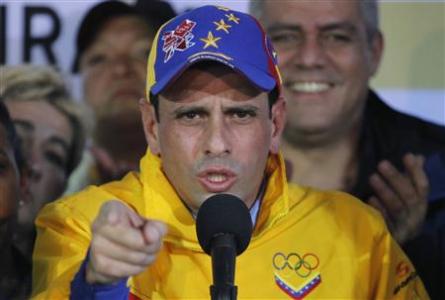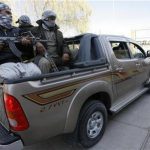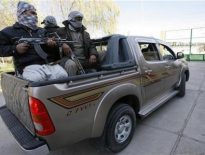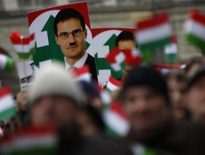(Reuters) – Allies of cancer-stricken President Hugo Chavez swept to victory by taking nearly all of Venezuela’s 23 states in elections on Sunday, but Henrique Capriles consolidated his position as top opposition leader by winning re-election as governor.

Capriles, the 40-year-old governor of Miranda, beat Chavez’s former vice president Elias Jaua to retain control of the country’s second-most populous state, leaving him as candidate-in-waiting if Chavez’s ill health forces him aside.
The ruling Socialist Party, however, extended its control over the South American OPEC nation, snatching four states from the opposition to win 20 of the 23 states.
Possibly benefiting from a wave of sympathy over Chavez’s battle to recover from cancer surgery, it staged several upsets, including a victory in the most populous state of Zulia.
The youthful Capriles’ re-election will help maintain unity among the historically fractured opposition in a potential election against Vice President Nicolas Maduro, Chavez’s anointed successor.
Though his supporters whooped for joy, the subdued tone of Capriles’ victory speech and long faces of some in his campaign team reflected the reality of the drubbing the opposition took.
“I’m happy for Miranda, but not for our Venezuela,” Capriles said, accusing Socialist Party candidates of bolstering their showing by offering handouts to voters and exploiting Chavez’s illness. “The day must come when we defeat this abuse of power.”
Capriles won by just four percentage points, lower than his camp and most analysts had predicted.
Another prominent opposition leader, Henri Falcon, a former government ally who broke with Chavez in 2010, also won re-election. His broad popularity and appeal to working class voters have left many considering him a potential challenger to the socialist government.
“Nobody here is surrendering,” said Ramon Guillermo Aveledo, head of the opposition Democratic Unity coalition.
In southern Bolivar state, the opposition candidate refused to accept the official results that showed him losing on Sunday. He alleged irregularities in the vote count and called on supporters to protest in the street.
‘RED IN ALL CORNERS’
The results signaled the continued dominance of Chavez’s socialist leadership despite his ill health and in spite of widespread complaints about shoddy roads, unsafe streets and poor electrical services.
The vote date may have hurt the opposition, with plenty of middle-class opposition supporters already starting holidays.
Chavez’s brother Adan comfortably held their agricultural home state of Barinas, while the president’s former military comrade Francisco Arias unseated a prominent opposition leader, Pablo Perez, in oil-rich Zulia state.
“It’s been an immense victory. The map is red in all corners,” said Socialist Party campaign coordinator Jorge Rodriguez.
Turnout was a poor 54 percent, reflecting weariness with politics after the recent presidential campaign and the closeness of Christmas. Opposition sympathizers have grumbled that the date was intentionally chosen to heighten voter abstention to the benefit of Chavez allies.
CHAVEZ’S ILLNESS
The nation remains focused on Chavez’s recovery in Cuba from Tuesday’s six-hour operation – his fourth since he was diagnosed with cancer in the pelvic region in mid-2011.
Chavez’s struggle with a third bout of cancer has raised the possibility of a return to the polls just months after the October presidential election in which he beat Capriles to win a third term.
Officials say Chavez has regained full consciousness, is giving instructions from his bed, and was following Sunday’s vote closely.
“The commander-president continues to stabilize. The trend remains positive,” his son-in-law Jorge Arreaza, who serves as science and technology minister, said from Havana.
The official updates of his health are shy on details, however, so speculation is rife that Chavez may be in a life-threatening situation in Havana’s Cimeq hospital with both a difficult post-operative recovery and a possible spreading of the cancer.
Chavez, 58, is due to start a new term on January 10, but has named Maduro as his preferred successor should he be incapacitated. That would trigger a new presidential poll within 30 days.
(Editing by Andrew Cawthorne and Kieran Murray)





